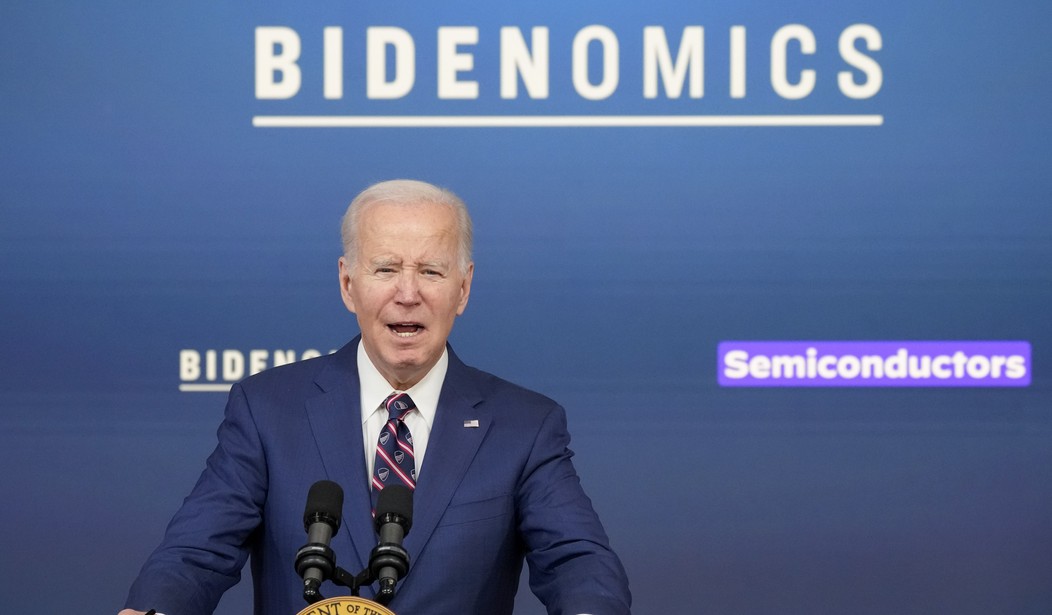I had a friend in college who was a full-blown, 100%, dyed-in-the-wool Communist. Usually, people who are Communists are smart enough to claim to be "Marxists," which is socialism with a human face. But my friend Frank was absolutely convinced that Communism was the wave of the future and that we all better get used to it.
Even in the late 1970s, it was obvious that the "Soviet experiment" was an abject failure. China and Maoism were in even worse shape. The Eastern European Communist nations were worse off than Russia after sending a significant portion of their GDP to Moscow to prop up the Soviet economy.
When I pointed this out to Frank, his response was telling. The Soviet Union, Eastern Europe, and China all failed because they never really tried Communism. Besides, he said, the leaders of all those nations were corrupt. Put real Communists in charge of America, and a veritable workers' paradise would be created.
You've probably heard the argument before. You probably also haven't listened to that argument for 30 years. So, when Biden Democrats claim that "Bidenomics" could have been successful if only it had been really, really honest-to-God tried the way we geniuses planned it out, there's no reason it won't work.
The left-wing authors of a new paper, “The Affordability Framework,” on the path forward for Democrats believe that more of the same "Bidenomics" would bring prices down and peace to the world...or something.
The paper’s lead author, Mike Konczal — a top economist in the Biden administration and a former director of the hard-left Roosevelt Institute — and co-author Becky Chao of the Economic Security Project are telling Democrats they did nothing wrong except not believe in the policy hard enough... or something.
The cost of living is the leading issue in American politics, a concern that the “Affordability Framework” acknowledges with a litany of economic woes from the Biden years. The authors note, for instance, that grocery prices rose 24 percent between 2020 and 2024, home prices jumped 50 percent over the past five years, and mortgage rates have soared. The main causes of these increases are clear: a lax Federal Reserve and an exploding federal deficit. Yet the report pays little attention to either.
That’s not surprising. For years, Konczal and others have begged the Fed for looser policies to juice the economy, showing little concern for fiscal restraint. Instead, Konczal and Chao point to two main causes of high prices. The first is “broken markets,” which they propose to fix through regulation, antitrust action, and direct government provision of services. The second is “broken incomes,” which they aim to address by boosting income for the lower and middle classes.
The authors claim that “decades of disinvestment from public goods and social insurance” have robbed middle class people of sharing in prosperity. As City Journal's Judge Glock points out, that's not entirely accurate. "At the start of Ronald Reagan’s presidency and the dawn of supposedly neoliberal economics in 1981, federal social insurance payments made up less than 8 percent of the economy," he writes.
Glock says that figure today is nearly 12 percent. What's more, "those programs are now supplemented by ever-increasing state social insurance payments."
The authors call for expanding transfer payments — including guaranteed income and single-payer government health care — to raise the incomes of the poor and middle class.
Why not just cut their taxes? That way, we eliminate Washington as the middleman and allow people to spend their pay in the most efficient and economical way they see fit.
Nearly all Americans—even those who pay little or no income tax—still contribute a share of the 15.3 percent FICA tax on their earnings. Though this tax is ostensibly dedicated to Social Security and Medicare, the revenue goes into the general government pot and thus helps fund a range of subsidies—such as housing vouchers, Medicaid, and food stamps—that often flow back to the very people paying it.
As I calculated in a recent report, some 20 percent of government transfer payments simply return funds to households that already paid at least that much in taxes that year. And as Chris Pope has shown in a different Manhattan Institute report, most low-income workers pay more in taxes than they receive in welfare transfers.
For some reason, progressives want to continue taxing people, routing the money through Washington, D.C., and then returning the funds to those same people in a form for which they didn’t ask.
"Whatever concerns people have about Trump’s economic management since his election, they’re not yearning for an intensified version of Bidenomics," writes Glock.
Next time you hear a Democrat talking about "affordability," think "Bidenomics," take two aspirin, and call me in the morning.










